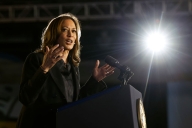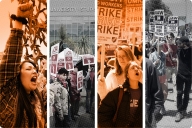You have /5 articles left.
Sign up for a free account or log in.
Going up for tenure is stressful enough. But what if, while you are in the middle of the process, an institution decides to change the criteria or the timeline? That's what faculty leaders say has been happening at a number of campuses.
In May, professors at Transylvania University voted no confidence in their president in part for denying two faculty members tenure based on a future, but not yet adopted, publication standard for tenure.
While the Kentucky institution was planning to require publication of a peer-reviewed scholarly or creative work for tenure consideration starting in the 2015-16 academic year, according to information from the dean's office, faculty wrote to President R. Owen Williams in an appeal that it was "unfair and unethical" to make his decision based on that standard. The American Association of University Professors agreed. (Williams said publication in a peer-reviewed medium was a standard that had previously, if not consistently, been applied in tenure decisions.)
Now members of the Colorado Conference of the AAUP are fighting back against several recent instances of what they see as universities in that state changing goalposts for tenure well into a candidate’s appointment.
During the past academic year alone, five professors complained to the conference of unfair evaluations in the near run-up to tenure, said Stephen Mumme, professor of political science at Colorado State University in Fort Collins and co-president of the Colorado conference.
At the Colorado State University at Pueblo, for example, said Jonathan Rees, professor of history and a state conference co-president, two English professors were recommended for tenure by their dean. Then, when the dean learned that the professors had applied for tenure a year early, he reversed his recommendation, Rees said, arguing that anyone going up for tenure early should be judged by a stricter standard than anyone going up in the usual amount of time of six years. (AAUP maintains that tenure candidates should be judged by the criteria and standards articulated at the time of appointment, and can choose to apply for tenure early if they've met those standards -- not that candidates be judged by heightened standards if applying early.)
“They pointed out, correctly, that this was nowhere in the faculty handbook,” Rees said, and the provost eventually reversed the dean’s negative recommendation. Both are now tenured, but “there were a few weeks during which both of them were nervous and upset.”
Roy Sonnema, dean of the College of Humanities and Social Sciences at Pueblo, said in an e-mail that he didn't view his decision as shifting standards midstream; the faculty in question failed to indicate in their applications that they were attempting tenure early "de facto." When he discovered that they had, he recommended that they take another year, he added.
"The university has granted early tenure in the past to faculty members who have clearly excelled and unquestionably met the criteria for scholarship, teaching, service," he said. "The reason I reversed my decision was that I honestly felt these two faculty members would each benefit and have a stronger case for tenure if they waited a year and added additional publications, teaching experience, and service activities."
In an e-mail, Rick Kreminski, provost, said, “Given the significance of the awarding of tenure, the decision is typically made during a faculty member's sixth year of service, in order to be as certain as possible that these criteria are met – and any decision made earlier than the sixth year naturally and logically warrants heightened scrutiny, since the argument that genuine promise of continued significant contribution exists is a more difficult one to make, when fewer years are available in the record.” The faculty members in question deserved tenure, he added.
At the Fort Collins campus, Mumme said, one professor nearing tenure was confronted with an external funding requirement that hadn't previously been agreed upon. Other professors were faced with heightened publication requirements far into their probationary periods that either were difficult to meet before their tenure decision or devalued previous work.
William M. Timpson, professor of educational leadership at the Fort Collins campus and a conference executive committee member, said he believed the problem was probably national in scope and used in some instances to undermine shared governance principles.
“I have seen these ‘shifting standards’ used to narrow what has been accepted as ‘scholarly work,’ e.g., insisting that peer reviewed articles in high impact factor journals will be given much greater weight than books or chapters,” he said in an e-mail.
Ultimately, he added, “faculty creativity may be stifled and academic freedom threatened by more narrowly defined criteria. With a commitment to shared governance, we could have these discussions out in the open.”
As such, the conference has adopted a statement explicitly against shifting standards to an unreasonable degree during the tenure process.
“It is normal and desirable academic practice for academic units to periodically review and revise their operational codes with respect to internal governance procedures and acceptable standards for tenure and promotion with reference to the evolving standards of particular scholarly disciplines,” the statement reads.
“Such changes, however, do not occur in a vacuum and are of particular concern to tenure-track faculty still in their probationary period at the time such changes take effect," it continues. "Changes in codes and the criteria for tenure and promotion may well alter the terms of the contract agreed upon at the original time of employment.”
For example, according to the statement, a faculty member may begin a line of scholarly work recognized as “worthy" by tenure criteria. Years down the line, however -- similar to Timpson's anecdote -- the work may be deemed “less worthy” by virtue of its appearing in publications lacking a “high impact factor” articulated as expectations in changes to those criteria.
The conference advises universities to evaluate probationary faculty in terms of their original contract letter and standards for tenure in effect at the time of their appointment unless otherwise agreed to in writing. And when changes in code or evaluation criteria occur, "previous accomplishments by the probationary faculty member should be recognized in writing."
Robert Kreiser, associate secretary for academic freedom, tenure and governance at the national AAUP, said he didn’t know how pervasive the problem of “ratcheting up standards” midstream was, as AAUP has never formally studied it. “But I would not be surprised if that was happening,” he said.
The Colorado conference statement on the matter reflects national AAUP policy, but conference members said their statement is more direct.
“[The] principles on which this statement is based can be found in various procedural recommendations in the AAUP Redbook,” said Mumme, referring to the body’s Policy Documents and Reports. “The problem with the Redbook is it’s not sufficiently clear on this particular point—you have to read it carefully and put the pieces together to establish the standard we articulate in the statement.”
Kreiser agreed that the Colorado conference's statement is more explicit than any in the book, and he endorsed its premise.
“We don’t object to raising standards incrementally, if they’re not unreasonable standards,” Kreiser said, such as increasing by one the number of published articles expected during a candidate’s third or fourth year on the tenure track. But major changes, particularly toward the end of a candidate’s probationary period, aren’t acceptable.









